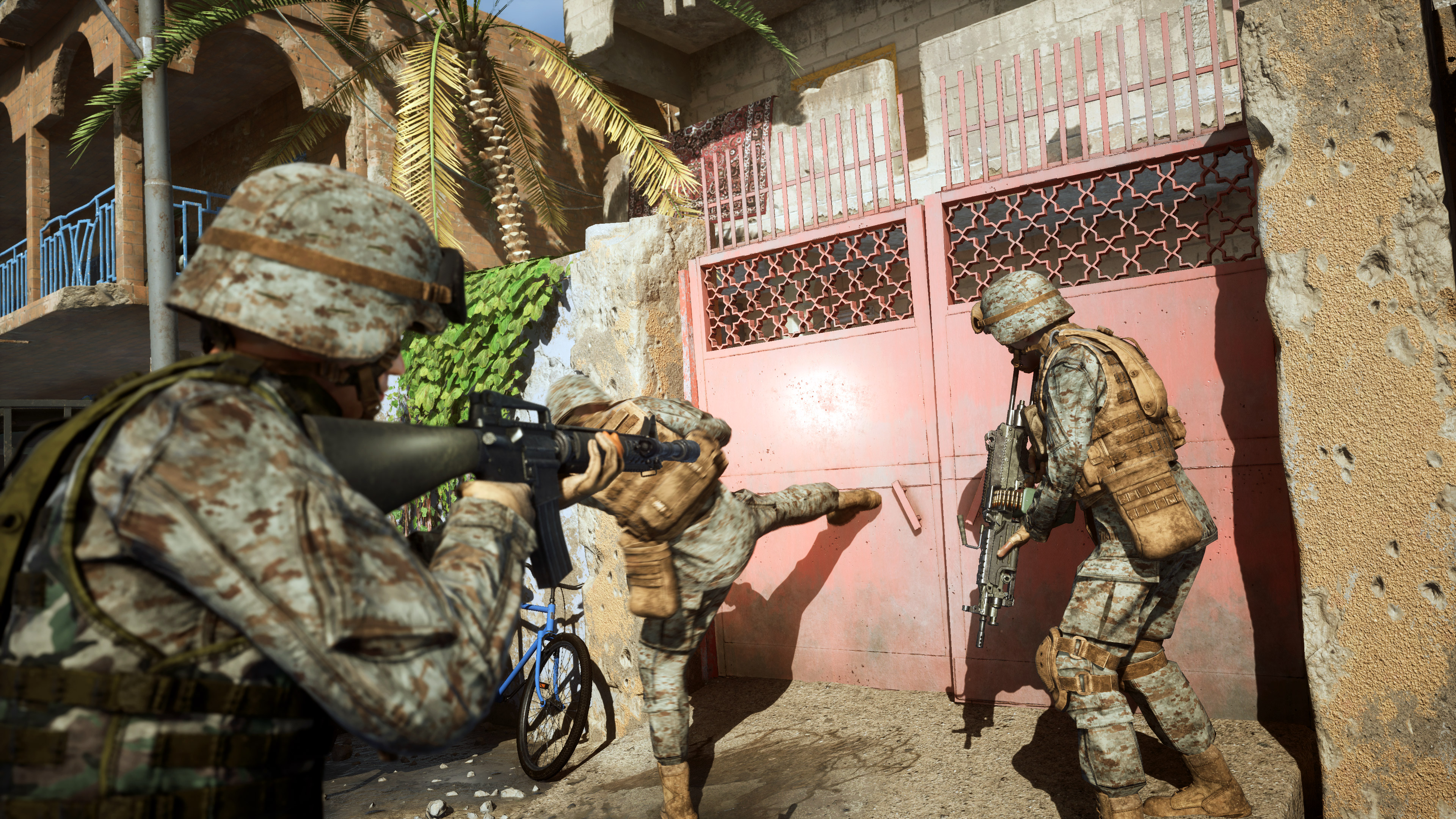Six Days in Fallujah is controversial war shooter that continues to cause debate online. After its creators said that the game won’t be a “political commentary,” some developers questioned whether games should touch political topics at all.

A new wave of debate happened after Polygon published an interview with Victura, the publisher of Six Days in Fallujah. You can read about the game and the controversy surrounding it here.
“We’re not trying to make a political commentary about whether or not the war itself was a good or a bad idea,” the game’s creators claimed in the interview. Developers want to focus on people and personal stories, trying to arouse sympathy for US soldiers and unarmed civilians.
For us as a team, it is really about helping players understand the complexity of urban combat. It’s about the experiences of that individual that is now there because of political decisions. And we do want to show how choices that are made by policymakers affect the choices that a Marine needs to make on the battlefield. Just as that Marine cannot second-guess the choices by the policymakers, we’re not trying to make a political commentary about whether or not the war itself was a good or a bad idea.
Head of publisher Victura
Tamte also isn’t interested in “litigating what constitutes a war crime,” and that’s why he didn’t want to include using white phosphorus as a weapon in Six Days in Fallujah. US soldiers and their actions will make up 90% of the game’s action, while the other 10% will be given to civilians.
However, Tamte’s comments only made the whole situation more complicated. Indie developer Rami Ismail wrote a long thread on Twitter (now the posts and his account are inactive), criticizing the interview and the publisher’s position.
He says that war is “political machinations,” so it’s impossible to make a war game like this without political commentary and touching on particular topics. “Tamte is a person trying to make money off of real human suffering that extends to this day,” Ismail wrote in a since-deleted series of tweets.
Neil Druckman, co-president of Naughty Dog, also addressed the issue on Twitter. He thinks that if developers don’t want to touch on serious topics to avoid being “political,” then they’d better just make different games.
If your game deals with serious subject matter then it is inherently political. If that’s a problem, make a different game… otherwise you owe it to your game to lean into it, doing your damnedest to treat as honestly, completely as possible. Warts and all.
— Dr. Uckmann (@Neil_Druckmann) February 15, 2021
SIE Santa Monica’s creative director Cory Barlog supported Druckman. He said that the best stories he has experienced were told with “fearlessness and passion, exposing the good, bad and the ugly of the characters and the world they live in.”
The best stories I have experienced were told with fearlessness and passion, exposing the good, bad and the ugly of the characters and the world they live in.
I’m thankful to every creator who followed their inner voice through the uncertain darkness to realize their vision.❤️ https://t.co/Dc9EoFba7G
— Cory Barlog ? (@corybarlog) February 15, 2021
Not every user agreed with this point of view. Some people argued that developers can avoid any topics or tell the stories the way they want to tell them. The issue is that there are always going to be players who won’t like your project.
Other users also joined the discussion around Six Days in Fallujah, saying that developers should, instead, focus on making antiwar games — like Spec Ops: The Line or This War of Mine.
